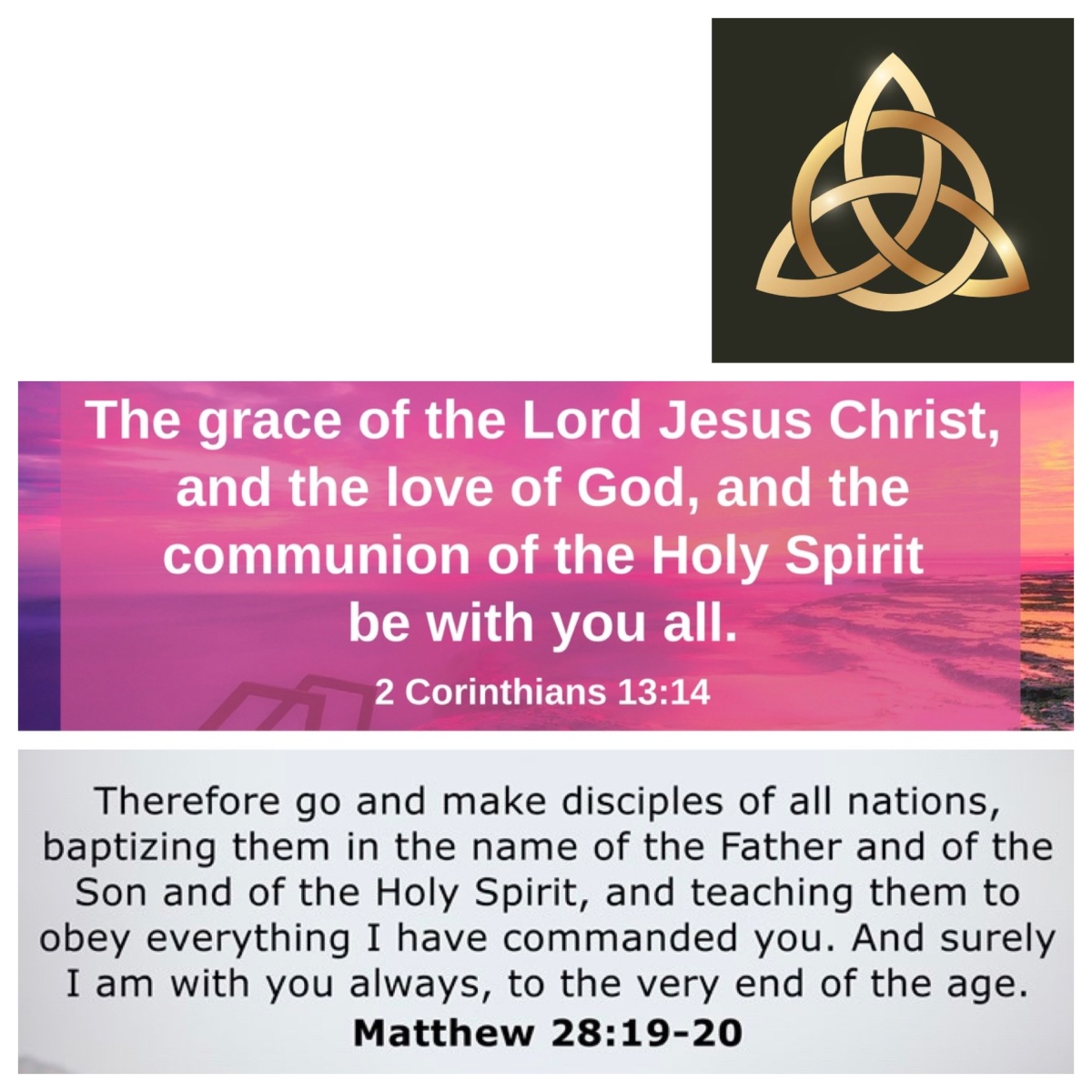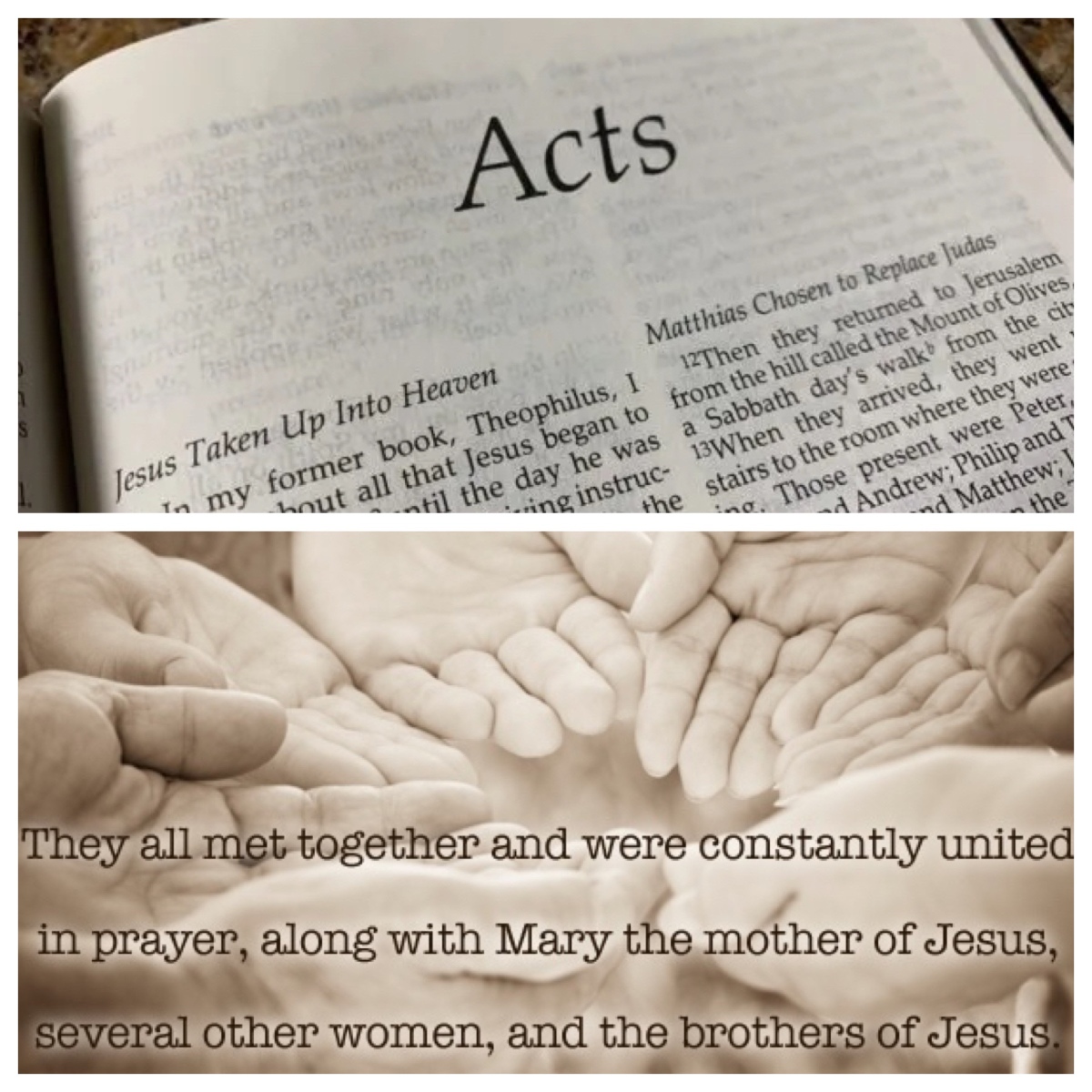This coming Sunday is one of those extremely rare moments in the course of the church year. It’s a Sunday that raises some difficulties for me. First, it’s one of the very few times in the Christian calendar that a Sunday is named for a doctrine, rather than for a biblical story (Easter, Pentecost, Christmas, and the like). And second, it is unusual in that it presents problems for the shapers of the lectionary, since (in my view) the Doctrine of the Trinity is not actually proclaimed in the biblical texts.
Indeed, we might well argue that the texts which are selected for this coming Sunday are actually being asked to undertake work that they weren’t intended to do, and that they can’t actually do without significant violence being done to them. I have already explored the two Hebrew Scripture passages (Genesis 1 and Psalm 8); see
In this post I turn to the two New Testament passages (2 Corinthians 13 and Matthew 28). What then, first, of Paul’s closing words of his second letter to the Corinthians? This provides one of the rare instances in the New Testament where Jesus, God, and the Holy Spirit appear in close proximity within the same sentence. Could this be an early statement of a three-in-one deity? Some interpreters would have us think so.
However, the blessing that is offered at the end of this letter is not Paul making a doctrinal declaration about the inner nature of God. It is, rather, a poetically-inspired literary variation and expansion of the typical closing words that we find at the end of his letters.
“The grace of the Lord Jesus be with you” is how he has ended his earlier letter to the Corinthians (1 Cor 16:23), a closure similar to “the grace of our Lord Jesus Christ be with you” (1 Thess 5:28), “the grace of the Lord Jesus Christ be with your spirit” (Phil 4:23 and also Phlmn 25), and “may the grace of our Lord Jesus Christ be with your spirit, brothers and sisters. Amen” (Gal 6:18). Each ending has a very minor stylistic variation.
Writing to the believers in Rome, where dissension had gripped the house gatherings in that city, Paul most likely ended his long letter with a different blessing, “the God of peace be with all of you. Amen” (Rom 15:33). At some point, the extended greetings of Rom 16:1–16 was added, leading to a later word of blessing, “the God of peace will shortly crush Satan under your feet; the grace of our Lord Jesus Christ be with you” (Rom 16:20), after which yet more greetings are offered (Rom 16:21–23) and then a quite uncharacteristically flowery closure is appended–most likely by a later scribe, wanting to give a grand finale to Paul’s longest letter (Rom 16:25–27). In place of that excessive ending, another scribe substituted the more typical Pauline blessing, “the grace of our Lord Jesus Christ be with all of you. Amen” (marked as Rom 16:24 in our numbering).
All of which indicates that the closing blessing in Paul’s authentic letters was both predictable, in that it offered grace, and also variable, in that it was occasionally nuanced and modified from the basic form. Such is the case in 2 Cor, where the standard blessing is extended.
The first phrase picks up Paul’s concerns in this letter for God’s grace, manifest to the Corinthians (2 Cor 1:12; 4:15; 6:1; 8:1; 9:14; 12:9). The second phrase adds God’s love, evident not only in Paul’s earlier words in 1 Cor 13, but also in this letter (2 Cor 5:14; 13:11). And the third phrase evokes the compassionate outpouring of the opening chapter of this letter, as Paul expresses his fellowship with the Corinthians by offering them consolation in their sufferings (2 Cor 1:3–11) and his fervent desire to visit them (2 Cor 1:15—2:4), culminating in his passionate expression, “I wrote you out of much distress and anguish of heart and with many tears, not to cause you pain, but to let you know the abundant love that I have for you” (2 Cor 2:4).
Indeed, it in in this letter that Paul most clearly articulated his understanding of, and commitment to, “the ministry of reconciliation ” (2 Cor 5:11–21). This understanding has surely come to fullest expression in the context of his relationship with the Corinthians, with whom he has certainly struggled, yet for whom he has a profound depth of compassion and love. He yearns to be held within “the communion of the Holy Spirit” with them.
The closing blessing at 2 Cor 13:13 is thus a personal, compassionate expression of his love and concern for the Corinthians-a fitting ending to a most passionate letter. It is far away from being a statement of the doctrine of God.

Which leaves, last of all, the closing words of Matthew’s Gospel (Matt 28:16–20), in which Jesus is said to have given a final command to his disciples, and assured them of his enduring ongoing presence with them “to the end of the age”? Here, embedded in the primary command to “go to all nations”, there is the subsidiary instruction to “make disciples”, as well as a further subsidiary instruction to “baptise in the name”. It is this last clause, of course, which motivates the offering of this passage for Trinity Sunday.
The focus of the passage which is commonly referred to as “the Great Commission” in Matthew’s Gospel (28:19–20) need to be read carefully. There are four key verbs (doing words) in these two verses: go, teach, baptise, teach. In strict syntactical analysis, the main verb is the one in the imperative (expressing a command): “make disciples”. Subsidiary to that are the other three verbs, each of which is in a participial form (indicating an action that is related to, or consequent from, that main verb). So making disciples is the key factor in this commission.
The act of making disciples is directed towards “the nations”—that is, to anyone with whom the followers of Jesus come into contact. It is to be expressed through two activities: baptising, and teaching. The act of making disciples is also to take place “as you are going”, that is, as followers of Jesus are making their way through the world in the days ahead.
Teaching orients the focus of the disciples back to the time that they spent with Jesus; they are to teach the people of the nations “to obey everything that I have commanded you”. As Matthew has taken great care to compile and collate the teachings of Jesus into five clear sections of his Gospel (chs. 5–7, 10, 13, 18, 23–25), the guidelines provided by Jesus are evident. What he has taught in his time with the disciples is to be passed on (in good rabbinic style) to those whom they then instruct. Teaching is an activity for life in this world, very clearly.
Baptising orients the focus of the disciples to the life of the church in the future. Belonging to Jesus involves submitting to the ritual of immersion into water, signalling the new life that is taken on through faith. So, when we look at each of these factors—the syntax, the content, the focus of the passage, we must conclude that thispassage is clearly directed towards the activity that the disciples of Jesus are to undertake from this time onwards. It is not offering a doctrinal definition.
The formula used in Matt 28:19 is, in fact, something that emerges only later in the life of the church (probably not until the time of Constantine, as far as we can tell from other Christian literature). Once again, life in community on this earth is the focus. There is no sense of being baptised (“christened” in the old language) into a mysteriously complex entity of a triune being in order to “get into heaven” in accordance with institutional theological dogma. The emphasis is on community building and discipleship development within the evolving faith communities of the Jesus movement.
The focus here is on what the disciples need to do in the earthly life that stretches ahead of them: bear witness, make disciples, teach and baptise, continue out amongst “the nations” the mission that the earthly Jesus has been undertaking amongst “the lost sheep of the house of Israel”. That is far removed from any abstract speculative hypothesising about the nature of a transcendent divine being.
































